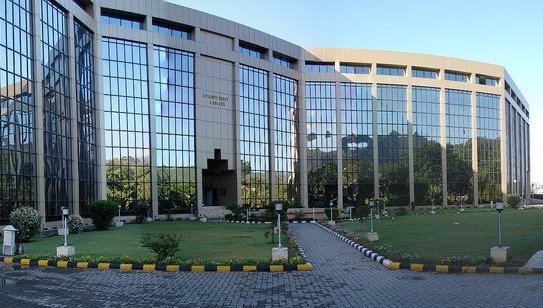New study reveals FDI inflows thrive amid systemic corruption, calling for urgent reforms to ensure sustainable economic growth.
Key Takeaways:
1. Corruption as an Enabler: Systemic corruption in Pakistan is not deterring FDI; rather, it is facilitating it, particularly in the energy, food, and financial sectors.
2. Sectoral Impact: Despite large FDI inflows, sectors like energy remain burdened by mismanagement and debt, undermining potential gains.
3. Urgent Reforms Needed: The IPRI recommends digitization, AI-driven oversight, and contract enforcement to ensure FDI supports sustainable development rather than perpetuating dysfunction.
Money Matters Monitoring – A groundbreaking policy brief from the Islamabad Policy Research Institute (IPRI) has revealed that foreign direct investment (FDI) continues to flow into Pakistan despite — and sometimes because of — entrenched corruption. The report, which analyzed FDI trends from 1995 to 2024, highlights how corruption has become an enabler rather than a deterrent for foreign investors, especially in critical sectors like energy, food, and financial services.
According to the study, Pakistan’s low Corruption Perceptions Index (CPI) score of 27 out of 100 marks it as one of South Asia’s most corrupt investment destinations. Yet, rather than scaring off investors, this environment appears to facilitate capital inflows. The report notes, “Corruption in Pakistan does not just coexist with FDI — it facilitates it,” describing a transactional landscape where regulatory hurdles are bypassed through informal payments and bribery rather than genuine reform.
The energy sector stands out as a prime example. Despite billions of dollars in FDI — much of it under the China-Pakistan Economic Corridor (CPEC) — systemic corruption has undermined progress, leaving the sector mired in a circular debt exceeding Rs2.6 trillion. Projects once hailed as solutions to energy shortages have become cautionary tales of mismanagement and opacity.
Foreign investment in banking and food services has similarly failed to deliver productivity gains, with the financial sector heavily skewed toward government lending and the food sector remaining import-dependent, further straining Pakistan’s external accounts.
The IPRI report situates Pakistan’s experience within a broader South Asian context, noting that neighboring countries like India, Bangladesh, and Sri Lanka, all with low CPI scores, also attract significant FDI. In some cases, foreign firms may even prefer environments where they are accustomed to navigating systemic corruption.
To break this cycle, the report urges Pakistan to move beyond symbolic anti-corruption measures. Key recommendations include digitizing FDI transactions, enforcing performance-linked contracts, deploying AI tools to detect anomalies, and streamlining licensing processes through better inter-agency coordination.
“FDI should be a tool for development, not a subsidy for dysfunction,” the report concludes. “Without structural reforms, foreign capital will continue to reward and reinforce the very systems that hold Pakistan back.”




